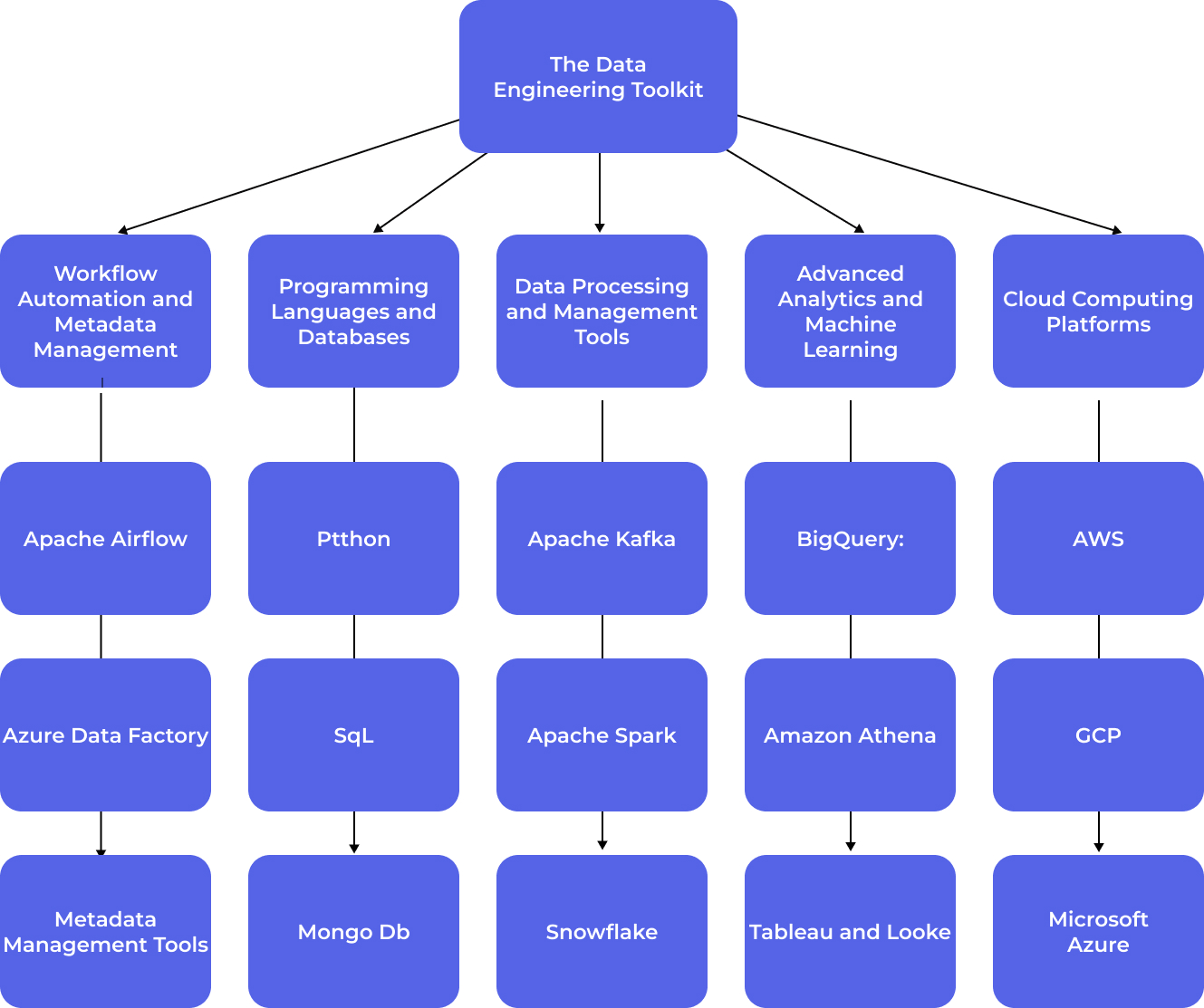Last updated April 10/04/2024 Udhayaseelan Renganathan
In 2023, the landscape for data engineer jobs in the US and Singapore saw significant shifts amid growing concerns over costs, leading to a cautious start in hiring within the tech sector. However, as the year progressed, opportunities in data engineering, especially in emerging technologies like AI, machine learning, and blockchain, began to pick up pace. This trend not only opens up avenues for remote data engineer jobs but also emphasizes the importance of diversity and inclusion in the recruitment process, making it a crucial time for Singaporean data engineers to consider their career moves and opportunities in the US.
Amid these changes, the demand for senior data engineer jobs, alongside entry-level positions, has witnessed a resurgence, particularly with companies revisiting in-office work arrangements and becoming more strategic in their hiring practices. For those exploring data engineer remote jobs or data engineer jobs near me, the current market demands a blend of technical skills and adaptability. This article will navigate through the essential skills, industry demands, and challenges faced by Singaporean data engineers looking to thrive in the evolving tech industry of the US.
As a Hadoop Administrator, managing the entire Hadoop ecosystem within an organization is a critical responsibility. This role involves ensuring that all services within the cluster are operational, which includes addressing connection issues, onboarding new applications, and configuring environmental settings for various components like Spark and HDFS. Daily tasks are quite dynamic;they range from creating user directories and coordinating with the Securityteam for Kerberized clusters to actively monitoring cluster performance and responding to alerts and issues.
Design and Maintenance of Data Systems : Data engineers create and oversee the infrastructure necessary for storing, processing, and managing data.
Data Accessibility : Ensuring that data is easily accessible to other data professionals within the organization is a primary responsibility
Development of Data Pipelines : They build pipelines that automate the flow of data across various systems, enhancing efficiency and reducing the likelihood of errors.
Data engineers also play a crucial role in the integration and orchestration of data from diverse sources. This not only involves technical skills but also a deep understanding of the operational needs of a business. By structuring and maintaining data in efficient systems, they enable organizations to leverage this data for strategic decisions, impacting various sectors like finance, healthcare, and technology.
Moreover, the evolution of data engineering has seen a shift towards more specialized roles within the field. Professionals might focus on specific areas such as data warehousing, data integration, or data transformation, depending on the needs of their organization. This specialization is a response to the growing complexity and scale of data operations, requiring more focused expertise to ensure systems are not only functional but also optimized for current and future data challenges.

Data engineering is a complex field requiring a robust educational background and a diverse skill set. Here’s a breakdown of the crucial skills and qualifications necessary for data engineers:
Degree Requirements : Most data engineers have degrees in Data Science, Software Engineering, Mathematics, or a business-related field. A bachelor's degree is typically essential for entry-level positions.
Specialized Education :Relevant degrees might include system architecture, programming, and database configuration, focusing on building a strong foundational knowledge.
Skills in managing databases such as MongoDB and MySQL are necessary, alongside a deep understanding of data modeling techniques.
Proficiency in Java, SQL, Python, and sometimes R and Scala is crucial.
Familiarity with tools like Apache Hadoop, Spark, and Kafka is essential for handling large datasets.
Experience with ETL tools such as Apache Airflow and Apache NiFi is valuable for data integration tasks
Ensuring the integrity and security of data is a critical skill in all data-related tasks.
Knowledge of cloud services like AWS, Azure, and Google Cloud Platform is increasingly important
Understanding basic machine learning principles can enhance a data engineer's ability to contribute to more advanced projects.
Tools and Platforms : Data engineers should be adept with various data processing frameworks and database technologies. This includes familiarity with data warehousing solutions like Amazon Redshift and Google BigQuery, and streaming platforms like Apache Kafka.
Version Control Tools : Knowledge of tools like Git and SVN is important for maintaining code integrity and collaboration.
By focusing on these areas, aspiring data engineers can equip themselves with the necessary tools and knowledge to thrive in the tech industry, especially those from Singapore looking to enter or progress in the US market.
In the dynamic field of data engineering, having a versatile and robust toolkit is essential for managing and analyzing large datasets effectively. Here’s a comprehensive overview of the key technologies and tools that every data engineer should be familiar with:

Amazon Web Services (AWS) : Offers a broad set of global cloud-based products including storage, databases, analytics, and machine learning.
Google Cloud Platform (GCP) : Provides services in all major spheres including computing, networking, storage, machine learning, and the Internet of Things.
Microsoft Azure : Known for its seamless integration with other Microsoft tools and offers services across multiple domains including AI, machine learning, and analytics.
Python : Known for its simplicity and powerful libraries like Pandas and NumPy, Python is a favorite among data engineers for data manipulation and analysis.
SQL : The standard language for relational database management systems, SQL is crucial for data querying and management.
PostgreSQL and MongoDB : While PostgreSQL is revered for its reliability and robust feature set, MongoDB is preferred for its high performance and flexibility with large volumes of data.
Apache Kafka : Facilitates real-time data processing by allowing data ingestion from multiple sources and makingit available to various consumers.
Apache Spark : Renowned for its speed and ease of use, Spark supports sophisticated analytics, including realtime streaming and machine learning.
Snowflake : A cloud data warehousing tool that separates compute and storage, allowing businesses to scale up or down without downtime.
BigQuery : Google's serverless data warehouse that enables super-fast SQL queries and interactive analysis of massive datasets.
Amazon Athena : An interactive query service that makes it easy to analyze data in Amazon S3 using standard SQL.
Tableau and Looker : While Tableau excels in creating rich visualizations, Looker provides robust data exploration capabilities.
Apache Airflow : Used extensively for orchestrating complex computational workflows and data processing pipelines.
Azure Data Factory :A hybrid data integration service that allows creating, scheduling, and orchestrating data workflows.
Metadata Management Tools : Essential for managing data glossaries and ensuring data integrity across large datasets.
This toolkit not only supports the technical demands of data engineering but also enhances the strategic capabilities of professionals in this field, enabling them to provide insightful data-driven decisions and solutions.
The tech landscape is currently experiencing a significant surge in demand for data engineers. This growth is driven by the critical role data plays in decision-making and strategic business operations. Here's a closer look at the employment trends and market drivers influencing this demand:
Significant Job Growth : The need for data engineers is projected to increase by 21% from 2018 to 2028, reflecting the expanding role of data in industries across the board.
Competitive Salaries : Entry-level data engineers start with salaries around $80,000, while the average salary hovers at approximately $109,675, showcasing the lucrative nature of this field.
Hyper-Automation :A Gartner report highlighted that hyper-automation would approach nearly $600 billion by 2022, necessitating skilled data engineers to manage and interpret the vast amounts of data generated.
Diverse Employment Opportunities : The US tech industry, including sectors like banking and financial services, offers varied roles for data engineers, further emphasizing the robust job market.
Strategic Initiatives :To combat the skills gap, strategies such as investing in training and development, partnering with service providers, and fostering a data-driven culture are essential.
This overview underscores the vibrant opportunities and the dynamic nature of the data engineering field, making it an attractive career path for those equipped with the necessary skills.


Years of Experience : Focuses on designing and managing the organization's Big Data infrastructure and tools .
Leadership and Technical Skills : Developsand implements tools and applications to facilitate data scienceand analytics.
Networking and Responsibilities : Provides technical support and ensures the smooth operation of Big Data tools and software.

Continuous Learning : Staying updated with the latest technologies and methodologies in data engineering is essential. This includes participating in workshops and further training.
Effective Communication : Being able to clearly communicate ideas and technical details to stakeholders of all technical levels is vital.
Focus on Results : Delivering projects successfully and on time helps build a reputation for reliability and effectiveness.
Seeking Feedback : Regular feedback is important not just for personal improvement but also for aligning with the company’s goals and expectations.
Company-Sponsored Training: Many companies are now investing in upskilling their employees to keep pace with evolving market demands. This often includes access to courses and certifications in newer technologies and methodologies.
By focusing on these areas, data engineers can strategically navigate their career paths and embrace opportunities for progression within the dynamic landscape of the tech industry.
Data engineers often encounter a variety of complex challenges that can impact their efficiency and the quality of their work. Here’s an overview of some of the most common issues they face:
Continuous Learning : Staying updated with the latest technologies and methodologies in data engineering is essential. This includes participating in workshops and further training.
Effective Communication : Being able to clearly communicate ideas and technical details to stakeholders of all technical levels is vital.
Focus on Results : Delivering projects successfully and on time helps build a reputation for reliability and effectiveness.
Seeking Feedback : Regular feedback is important not just for personal improvement but also for aligning with the company’s goals and expectations.
Continuous Learning : Staying updated with the latest technologies and methodologies in data engineering is essential. This includes participating in workshops and further training.
Effective Communication : Being able to clearly communicate ideas and technical details to stakeholders of all technical levels is vital.
Focus on Results : Delivering projects successfully and on time helps build a reputation for reliability and effectiveness.
Seeking Feedback : Regular feedback is important not just for personal improvement but also for aligning with the company’s goals and expectations.
Continuous Learning : Staying updated with the latest technologies and methodologies in data engineering is essential. This includes participating in workshops and further training.
Effective Communication : Being able to clearly communicate ideas and technical details to stakeholders of all technical levels is vital.
Focus on Results : Delivering projects successfully and on time helps build a reputation for reliability and effectiveness.
Seeking Feedback : Regular feedback is important not just for personal improvement but also for aligning with the company’s goals and expectations.
Continuous Learning : Staying updated with the latest technologies and methodologies in data engineering is essential. This includes participating in workshops and further training.
Effective Communication : Being able to clearly communicate ideas and technical details to stakeholders of all technical levels is vital.
Focus on Results : Delivering projects successfully and on time helps build a reputation for reliability and effectiveness.
Seeking Feedback : Regular feedback is important not just for personal improvement but also for aligning with the company’s goals and expectations.
Last updated April 10/04/2024 Udhayaseelan Renganathan